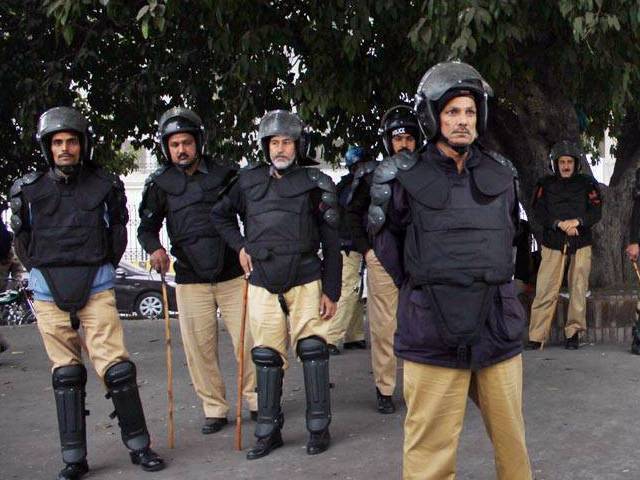Lahore:
Residents of the center of Punjab hoping to go on a road trip to Karachi are often warned against the dangers of the long journey. While dilapidated roads and the lack of climbing installations are a major means of deterrence, the true risk often surrounds the existence of a bunch of criminal hands.
The Katcha bandits, operating in southern Punjab, have become a serious challenge for the government despite several operations. Previously, a notorious group known as Gang Chotu was active in the Katcha region, but after a prolonged struggle, the government has successfully eliminated it.
However, in the past three years, bandits from across the country have launched a series of “Honey Trap” diets in southern Punjab, by which women are hired to attract victims under the cover of a romantic relationship.
The Katcha region includes areas on both sides of the Industry river via Dera Ghazi Khan, Rajanpur and Rahim Yar Khan. These areas have historically experienced minimal government control and, for several years, various bandit gangs have established their own authority. In addition to making flights, kidnappings, extensions and murders, these criminal gangs are also involved in the trapping of honey.
Despite dozens of large -scale police operations in the Katcha regions of Rajanpur, no substantial success has been obtained. Gangs like Lund, Umrani, Sukhani, Lathani and Dashti remain active in the region.
Due to river geography and the location of the tri-border, these gangs operate in the Sindh, Punjab and Balutchistan. Since 2002, they have remained a serious challenge for the police. Previous intelligence reports have suggested that some police, influential local tribal leaders and politicians supported these gangs.
A report summarizing the 2023 anti-bandits in the Katcha region concluded that the collusion of police officials had allowed the gangs to operate with impunity. Another confidential police report prepared under the supervision of the special branch, revealed that five police officers, including the bonds of Kot Sabzal and Bhong, were not only found facilitating the bandits, but were also accused of having forcibly seized the agricultural land worth millions of local farmers.
Some members of the Punjab police also acted as an accomplices to the Katcha bandits.
The report also revealed that during operations, innocent people were wrongly detained during staging meetings and bribes were taken. Those who refused to comply were threatened by the bandits. The report also alleged that CIA manager Muhammad Saleem had been considered close to the bandits.
However, Punjab Ig Dr. Usman Anwar rejected the report on the grounds that he was inaccurate and the police actively conduct successful operations against the bandits. “Several major gangs have already been dismantled and the police use all the available resources,” said Dr. Anwar.
In light of the deterioration of security conditions in the Katcha region, the Punjab House department has decided to return the surroundings of Rajanpur, notably Bangla Achha, Miani, Katcha Jamal, Katcha Moro and Karachi Katcha, to the Rahim Yar Khan police.
In addition, the Punjab government has decided to launch a new police operation in the region. Punjab police will receive modern equipment to face the terrorists. For the Katcha operation, the Inspector General (IG) of the Punjab requested funds for an amount of RS1 791 million, while a 10 million rupee head was set for the most dangerous bandits, called “high -value” objectives.
“The sacrifices of the martyrs will not go in vain, and the operation will continue until the bandits are brought to justice. New units of the Department of Terrorism (CTD) and the police participate in the operation,” said the secretary in the interior of Punjab.




